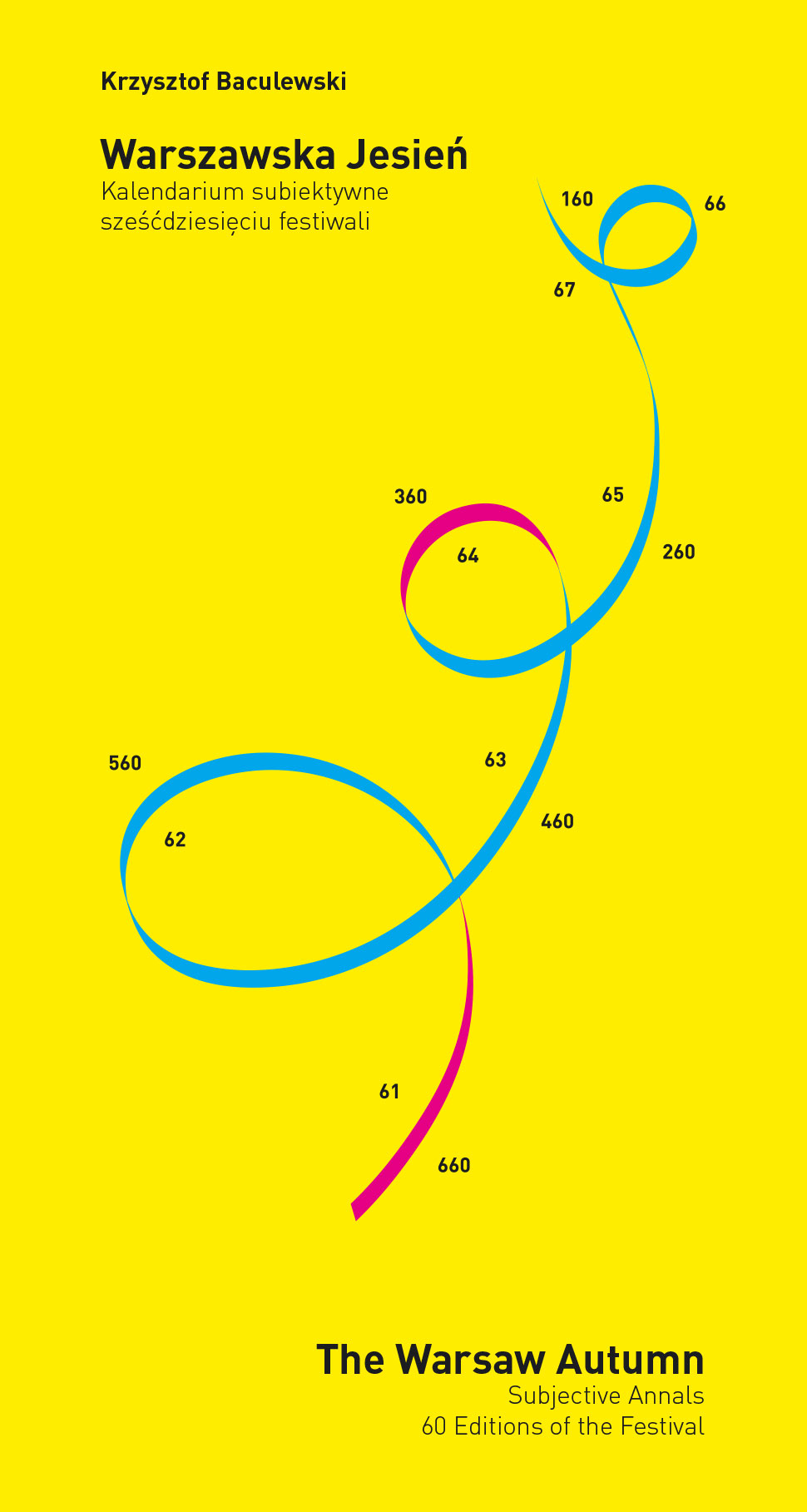
Krzysztof Baculewski "Subjective Annals 60 Editions of the Festival"
The 13th 'Warsaw Autumn' opened with a series of important Polish compositions: a work repeated in full as an encore (the first such event at this Festival in the present writer's memory) - Livre pour orchestre by Witold Lutosławski; then also Symphony No. 3 by Tadeusz Baird and Music for 16 Cymbals and Strings by Włodzimierz Kotoński. This 'Warsaw Autumn' edition also ended with important works: Parades by Zbigniew Bargielski and Gilgamesh by Augustyn Bloch. Between the opening and closing concert, we witnessed a number of significant music events. The situation had normalised, and the Festival was again attended by quite a few participants from abroad. ese included Balletéâtre Contemporain from Amiens, The Pierrot Players from London, Grupo Alea from Madrid, Società Cameralistica Italiana from Florence, and Dresdner Philharmonie under the baton of Kurt Masur - at that time considered as a third-rate conductor. The repertoire included works by Harrison Birtwistle, Peter Maxwell Davies, Vinko Globokar, the première of Muzyka staropolska (Old Polish Music) by Henryk Mikołaj Górecki, Apostrophes to words by Salvatore Quasimodo, composed by Jan Fotek (his 'Warsaw Autumn' debut), and Solitaire, produced by Arne Nordheim in the Polish Radio Experimental Studio, which turned out to be one of the most interesting works ever composed in this genre. John Ogdon performed the whole cycle of Olivier Messiaen's Vingt regards sur l'Enfant Jésus. John Tavener's 'Warsaw Autumn' debut also drew a lot of attention; his cantata The Whale created quite a sensation, perhaps more because of its subject than the music itself. It told (in Latin) the story of Jonah, preceded by an encyclopaedic introduction (in Polish, read by the popular TV announcer Jan Suzin) on the subject of whales and their biological situation in the modern world; original sounds produced by whales were played back from tape.